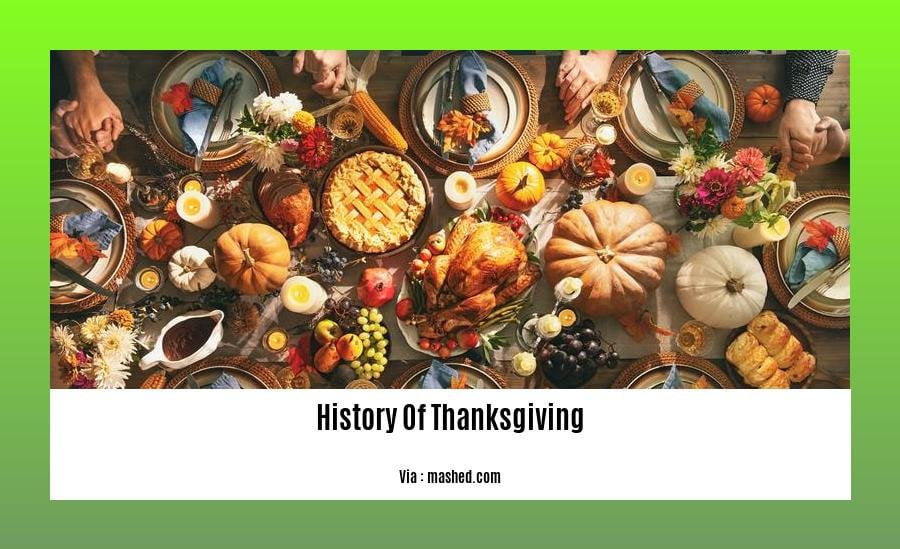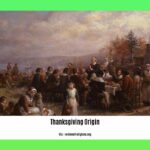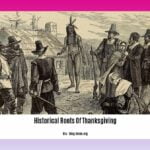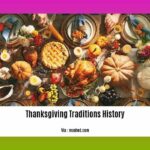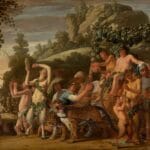In “The History of Thanksgiving: A Historian’s Perspective,” we embark on a journey through the annals of time, uncovering the fascinating origins and evolution of Thanksgiving, a cherished American tradition. From its humble beginnings as a harvest festival to its transformation into a national holiday, Thanksgiving has played a pivotal role in shaping the American identity. Delve into the historical context, cultural influences, and political complexities that have shaped this beloved celebration.
Key Takeaways:
- Thanksgiving is a holiday celebrated in the US and Canada that originated from a harvest feast in 1621.
- President Washington proclaimed a day of thanksgiving in 1789 for the nation’s independence.
- President Lincoln declared Thanksgiving a national holiday in 1863 during the Civil War.
- The holiday symbolizes family, friends, food, and remembrance of Native American history and culture.
History of Thanksgiving
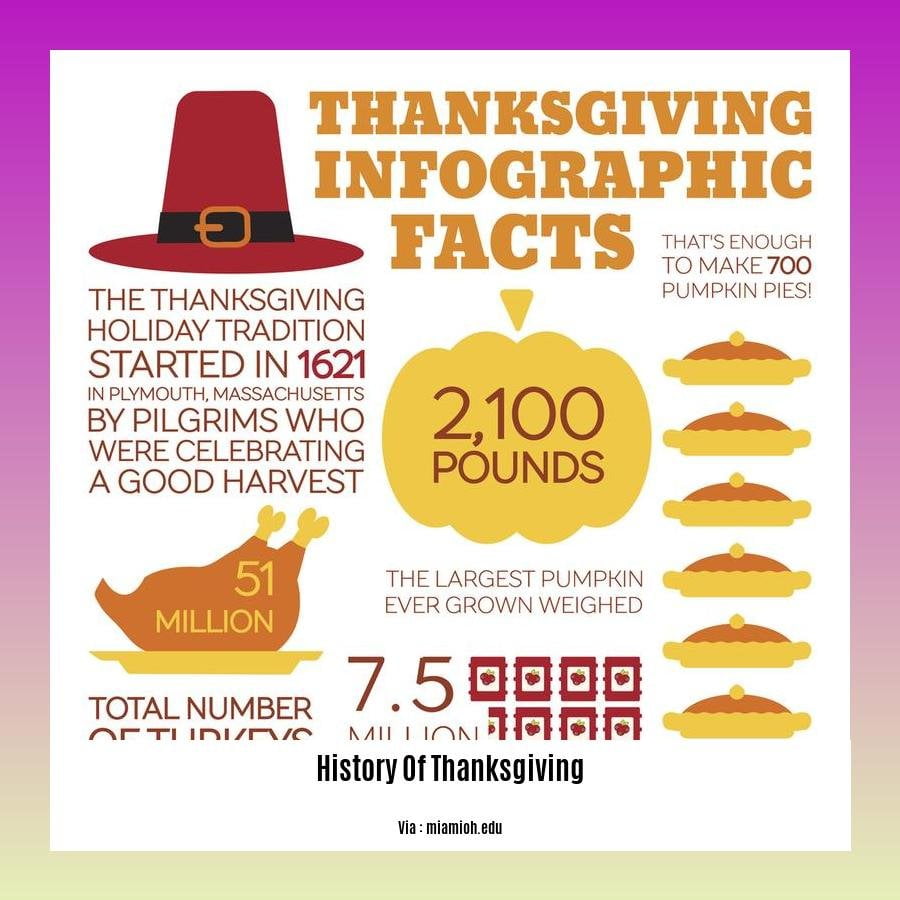
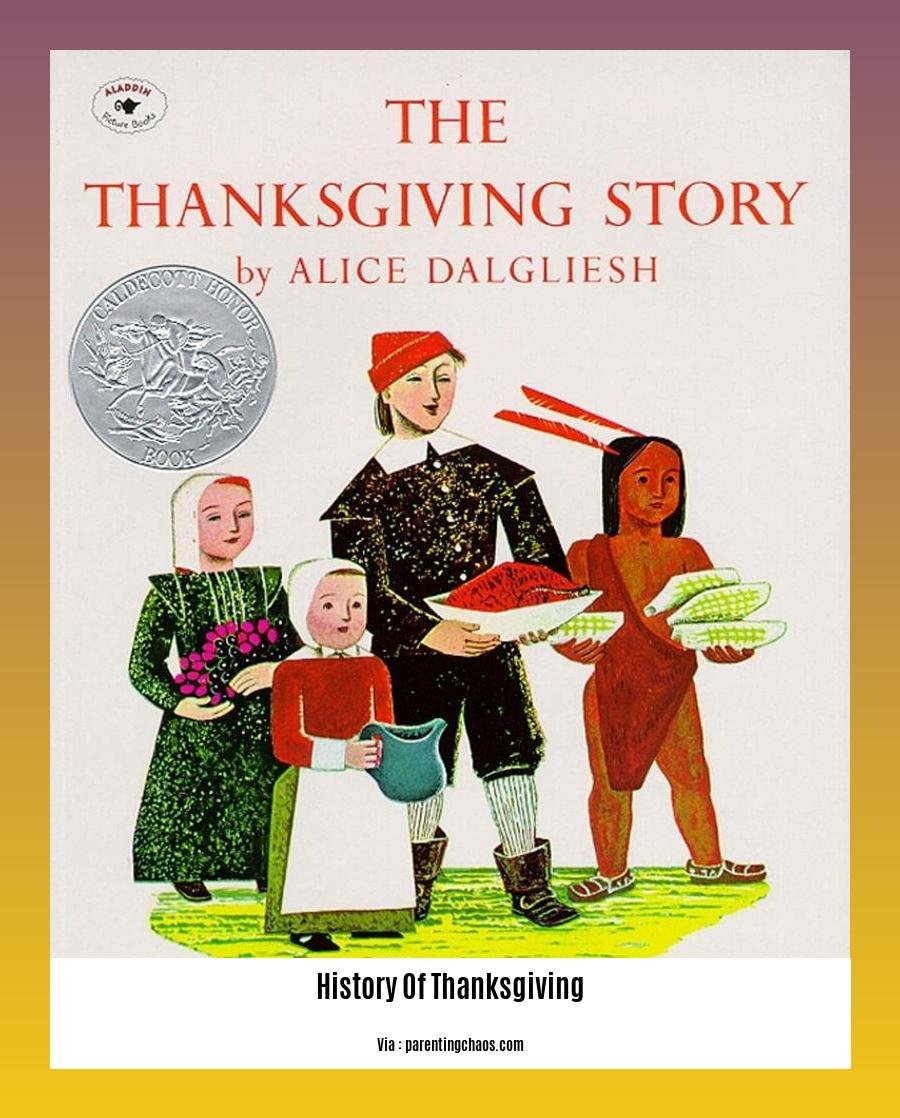
Thanksgiving, a uniquely American holiday, traces its roots to the 17th century. But did you know that its origins are steeped in a complex interplay of gratitude, cultural exchange, and historical evolution? Let’s delve into the fascinating history of Thanksgiving.
The Harvest Feast of 1621
The story begins in 1621, when newly arrived Pilgrims celebrated a bountiful harvest with their Wampanoag Native American neighbors. This feast, now known as the First Thanksgiving, symbolized a shared spirit of cooperation and survival in the harsh wilderness.
George Washington’s Proclamation
In 1789, after the American Revolution, George Washington declared the first national day of thanksgiving to express gratitude for the nation’s independence.
Abraham Lincoln and the Civil War
During the tumultuous Civil War, President Abraham Lincoln proclaimed Thanksgiving a national holiday in 1863. His goal was to unite a divided nation through a shared day of reflection and remembrance.
Thanksgiving Today
Today, Thanksgiving remains a beloved American tradition. It’s a time for families and friends to gather, share delicious food, and reflect on the history and culture that has shaped the nation. It’s also a time to remember and honor the contributions of Native Americans, whose role in shaping this holiday cannot be overstated.
So, let’s raise a glass to the history of Thanksgiving – a testament to the power of gratitude, collaboration, and the indomitable spirit that has defined the American experience for centuries.
Uncover the historical roots of Thanksgiving and thanksgiving origin in this comprehensive guide. Explore the fascinating thanksgiving traditions history that have shaped this beloved holiday.
History of Thanksgiving Timeline
Thanksgiving, a quintessentially American holiday, traces its roots back to a series of convivial gatherings that dotted the annals of early American history:
16th Century: Seeds of Thanksgiving
Spanish explorers in Florida (1541) and New Mexico (1598) feasted alongside Native American tribes, laying the groundwork for cross-cultural exchanges that would shape the holiday’s future.
17th Century: Pilgrims and Plymouth
- 1607: English colonists under George Popham shared a meal with Native Americans in Maine.
- 1621: The iconic “first Thanksgiving” unfolded in Plymouth, Massachusetts, as Pilgrims and Wampanoag Indians celebrated a bountiful harvest.
18th Century: A National Expression of Gratitude
- 1775: The Continental Congress called for a Thanksgiving to honor the Continental Army’s resilience.
- 1789: President George Washington proclaimed the first national Thanksgiving, recognizing the nation’s newfound independence.
19th Century: Lincoln’s Thanksgiving Proclamation
- 1863: Amidst the Civil War, President Abraham Lincoln established Thanksgiving as an official national holiday.
Key Takeaways:
- The history of Thanksgiving timeline is a tapestry of cultural encounters, harvest celebrations, and national gratitude.
- The “first Thanksgiving” in 1621 marked a pivotal moment in the relationship between European settlers and Native Americans.
- Thanksgiving evolved from local gatherings into a nationally recognized holiday, symbolizing unity and thankfulness.
Most relevant URL source:
Thanksgiving. (2023, January 4). In Encyclopedia Britannica.
FAQ
Q1: what is the origin of Thanksgiving?
A1: Thanksgiving originated from a harvest feast in 1621 between the Plymouth colonists and the Wampanoag Indians.
Q2: When did Thanksgiving become a national holiday?
A2: Thanksgiving was declared a national holiday in 1863 by President Abraham Lincoln.
Q3: What are some of the key events in the history of Thanksgiving?
A3: Key events in the history of Thanksgiving include the harvest feast in 1621, George Washington’s proclamation of a day of thanksgiving in 1789, and Abraham Lincoln’s declaration of Thanksgiving as a national holiday in 1863.
Q4: What is the significance of Thanksgiving today?
A4: Today, Thanksgiving is a time for family, friends, food, and remembrance of Native American history and culture.
Q5: What are some interesting facts about Thanksgiving?
A5: Some interesting facts about Thanksgiving include that the first Thanksgiving feast lasted for three days, and that turkey was not served at the first Thanksgiving.
